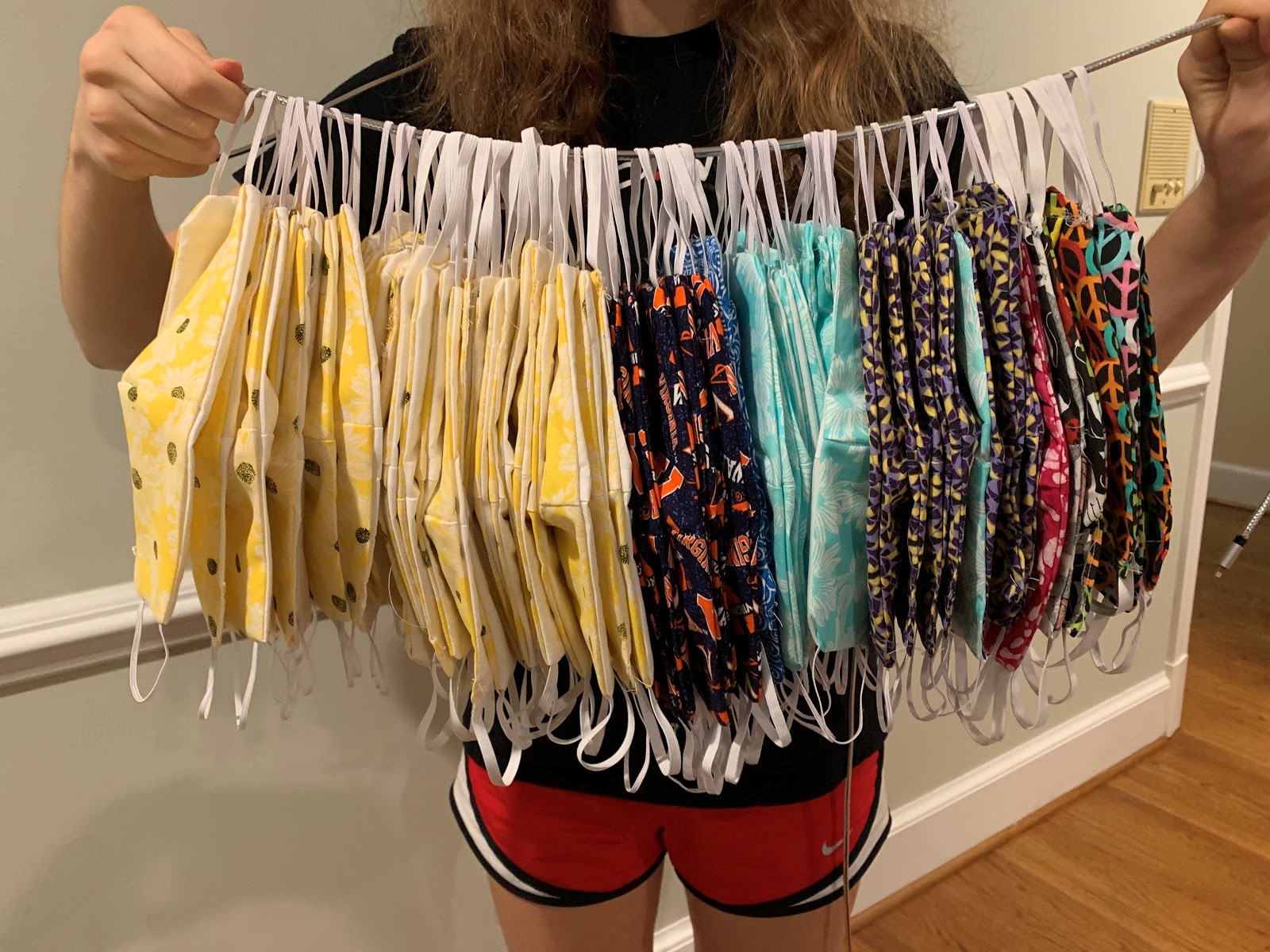With increasing COVID-19 cases, face coverings have now been made mandatory in several US states, including Virginia, in indoor public settings. However, due to growing demand and mass popularity, cloth face masks have become harder to come by. Shipping delays, costs, and even lack of nearby stores might render citizens mask-less during a global pandemic and leave hundreds susceptible to the disease.
Recognizing this problem and aiming to find a solution, three Godwin juniors—Emily Lionberger, Shraddha Anup and Estelle He—have launched their own face mask business, “E-S-E Face Masks.” Their mission statement is “to provide high quality, non-medical grade face masks that can both promote public safety and support Richmond charities.” The teens have sewn around 600 masks so far using bright patterned cotton fabric, with the additional vision of blending both fashion and public safety.
“The business began when [Lionberger] started to make masks for fun and to donate to a memory care facility. Once the word spread that she was making them, we decided to turn the mask making into a real business with licensing, insurance, and more,” said Anup.
What once started as a side hobby quickly grew into a passion. E-S-E Face Masks now has over 200 Instagram followers.
“We promote our products on various social media platforms such as Instagram and Facebook to reach people of all ages. We began marketing to our close friends, family, and cultural communities, and word quickly spread about our business,” said He.
The teens have pledged to prioritize the safety and comfort of their products. Since the masks are non-medical grade, they have taken extra precautions in guaranteeing the effectiveness of their masks. For example, they have chosen to sell the “Olson” style face mask, a pattern designed by health professionals to be used in the absence of surgical masks and the best pattern available for homemade face coverings.
“All masks are double layered and made of 100 percent cotton, which is the best-recommended fabric for face masks, to increase breathability while not compromising on protection,” said Lionberger.
The face masks are sold for $5 each, available in multiple patterns and sizes to fit every person’s needs. So far, the teens have raised around $1,000 in profit and have donated to different charities in the RVA area.
“We chose to donate to the VCU Children’s Hospital and Connor’s Heroes. Connor’s Heroes is an organization that is dedicated to helping families in Central Virginia cope with childhood cancer. Our goal was to donate to Richmond organizations, and we came up with a couple of ideas. Once we narrowed the list down, we also wanted to get the community involved, so we set up a vote on our social media platforms to ask our community members,” said Anup.
“We wanted to donate to local charities and support organizations which provide aid, especially during these challenging times. It is especially important for us to donate locally as we know we are helping children in our community,” said Lionberger.
Like with every craft, there were struggles and bumps along the road. Starting a business was no easy feat, and there was a learning curve to overcome.
“One of the most important things that we had to learn was how to run a business in itself. This has truly been a learning experience because there are so many legal aspects that go into selling a product, such as a face mask, to the community—involving insurance, taxes, and licensing, not to mention learning how to market a product well! The stay-at-home order increased the difficulty of mask production,” said He.
Nevertheless, the teens maintain an optimistic view for the future of their business and plan to sew more masks and donate more money in the upcoming months.
“This [business] is important to us because it gave us an opportunity to give back to our community and to other people who are struggling in these trying times. As many summer activities were canceled, we wanted to spend the extra time towards creating something that would benefit our community,” said the three juniors.
According to Lionberger, Anup, and He, the business allows them to help alleviate the difficulties that others are facing.
“We also think this business is important because it promotes community involvement and giving back because those buying our masks know that their contribution goes to others in need. Knowing that we made even a small impact on our community helps shine some light on the otherwise dark times that everyone is facing,” said the students.

Masks sold by juniors’ business, “E-S-E Face Masks.”

